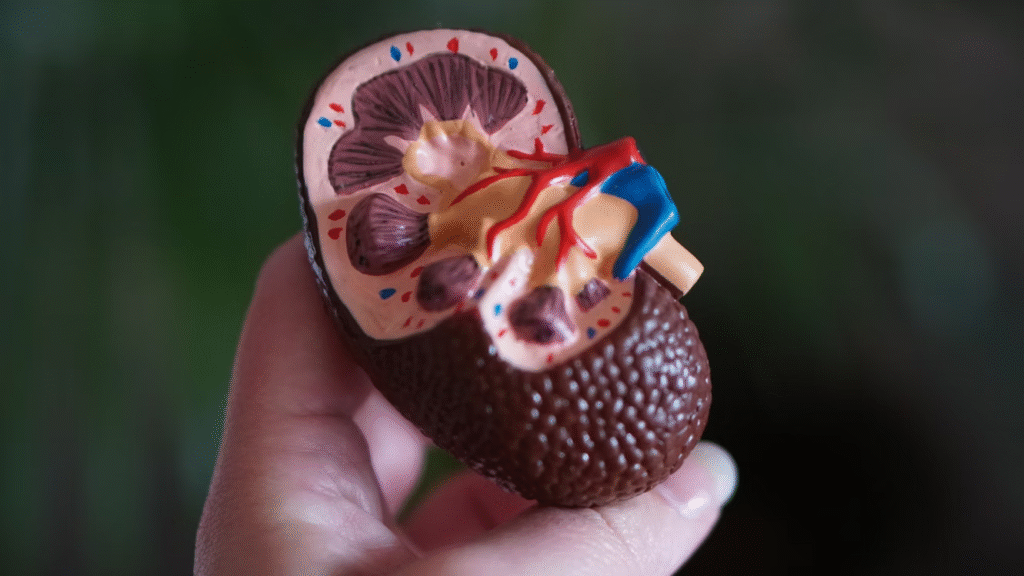Maintaining kidney health rarely crosses most people’s minds until a problem arises, yet these organs quietly support nearly every aspect of well-being. From filtering waste to balancing fluids and helping regulate blood pressure, the kidneys work around the clock without drawing attention to themselves. This makes it especially important to adopt habits that protect them long before symptoms ever appear. Many individuals only consider their kidney health when faced with a diagnosis or when seeking guidance from a kidney specialist in Arizona, but everyday choices play a far bigger role than most people realize.
Nourishing Your Body With Kidney-Friendly Daily Choices
One of the simplest ways to support long-term kidney health is through consistent, mindful hydration. Water helps the kidneys efficiently flush out waste and maintain the delicate balance of minerals and electrolytes that the body depends on. Even mild dehydration can make the kidneys work harder, which is why steady water intake throughout the day is more beneficial than occasional large amounts. People often assume that thirst alone is a reliable signal, but by the time you feel thirsty, your body may already be slightly dehydrated.
Your daily diet also influences how well your kidneys function over time. Eating whole foods that are naturally lower in sodium can help reduce the strain on your kidneys, especially since excessive salt intake forces them to work harder to regulate fluid and blood pressure. A balanced diet that includes fruits, vegetables, lean proteins, and whole grains provides your kidneys with the nutrients they need to keep functioning optimally. While a single salty meal is unlikely to cause harm, long-term habits matter far more, and small, consistent adjustments can offer meaningful protective benefits.
Managing Your Blood Pressure and Blood Sugar Through Routine Habits
High blood pressure and poorly managed blood sugar are two of the most common causes of kidney damage, yet they are often influenced by lifestyle rather than genetics alone. Regular physical activity helps maintain healthy circulation, reduces stress, and supports a balanced weight, all of which help reduce these risks. Even light activities, such as daily walks or gentle stretching sessions, can help regulate blood pressure, which, in turn, reduces strain on the kidneys over time. Small lifestyle choices that feel insignificant often compound into long-term protection.
In addition to movement, monitoring your diet for added sugars can help stabilize blood sugar levels. When blood sugar stays consistently high, it can damage the blood vessels in the kidneys, reducing their ability to filter efficiently. Eating meals at regular intervals, prioritizing fiber-rich foods, and avoiding excessive sugary drinks can help maintain steadier glucose levels throughout the day. These habits not only support kidney function but also benefit overall health, making them a worthwhile focus for anyone trying to adopt a more supportive daily routine.
Supporting Kidney Health Through Stress Reduction and Mindful Medication Use
Stress is often dismissed as a temporary feeling, but chronic stress can influence kidney health more than many people realize. When stress hormones remain elevated for prolonged periods, they can contribute to high blood pressure and inflammation, both of which place unnecessary strain on the kidneys. Incorporating simple relaxation practices such as deep breathing, journaling, or taking a few quiet moments to reset can help counteract this. Small daily stress-reduction habits may feel subtle, but over time they build resilience that benefits the entire body.
Another habit worth examining is how often you rely on common over-the-counter medications. Pain relievers such as ibuprofen and similar drugs can be harsh on the kidneys when taken too frequently or in high doses. While they are safe when used responsibly, consistently depending on them to manage discomfort can lead to long-term strain. Being mindful of medication use and exploring alternative approaches, such as gentle stretching, hydration, or rest, can reduce the need for frequent doses. When medication is necessary, following dosage instructions carefully can make a significant difference in long-term kidney health.
A Consistent Routine Forms the Foundation of Kidney Wellness
Protecting your kidneys is not about dramatic lifestyle changes but rather about small, meaningful habits that accumulate over time. These everyday actions often go unnoticed, yet they play a powerful role in keeping your kidneys functioning smoothly for years to come. Even simple steps like staying hydrated, choosing balanced meals, moving regularly, and managing stress can create a steady foundation for long-term kidney health. By paying attention to these daily choices and making small improvements where possible, you support your overall well-being and reduce the risk of complications later in life.
